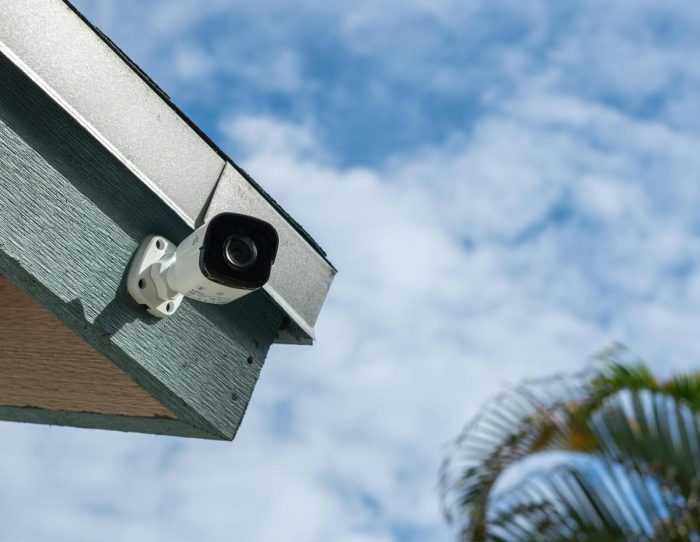Exploring the World of Licensed Home Improvement Contractors
Diving into the realm of licensed home improvement contractors, this introduction sets the stage for a comprehensive exploration of the topic. It offers valuable insights and perspectives, enticing readers to delve deeper into the world of home improvement.
In the following paragraph, readers will find detailed information and expert advice on the various aspects of working with licensed professionals in the home improvement industry.
Importance of Hiring Licensed Home Improvement Contractors

When it comes to home improvement projects, hiring licensed contractors is crucial to ensure the safety and quality of work. Working with unlicensed contractors can pose various risks to homeowners, including subpar workmanship, potential legal issues, and financial liabilities.Licensed home improvement contractors have undergone the necessary training and certification to perform their jobs effectively.
They are knowledgeable about building codes, regulations, and safety standards, which helps ensure that the work is done properly and up to code. In addition, licensed contractors are required to carry insurance and bonds, providing an extra layer of protection for consumers.
Risks of Hiring Unlicensed Contractors
- Unlicensed contractors may lack the proper skills and experience, leading to shoddy workmanship and costly repairs in the future.
- Consumers have little to no recourse in case of disputes or issues with unlicensed contractors, as they are not bound by the same legal obligations as licensed professionals.
- Homeowners may be held liable for any accidents or injuries that occur on their property while unlicensed contractors are working, as they may not have the necessary insurance coverage.
Benefits of Working with Licensed Contractors
- Licensed contractors are required to follow building codes and regulations, ensuring that the work meets industry standards and is safe for occupants.
- Consumers have legal protections when working with licensed contractors, such as the ability to file complaints and seek restitution through state licensing boards.
- Licensed contractors often provide warranties for their work, giving homeowners peace of mind and assurance that any issues will be addressed promptly.
Legal Protections for Consumers
- State licensing boards oversee licensed contractors and can take disciplinary action against those who violate regulations or engage in unethical practices.
- Consumers can verify a contractor's license status and check for any complaints or disciplinary actions through online databases provided by state licensing boards.
- Contractors are required to provide written contracts detailing the scope of work, timeline, costs, and other important terms, which can help protect consumers in case of disputes.
How to Verify a Contractor’s License

When hiring a contractor for your home improvement project, it is crucial to verify their license to ensure they are qualified and reputable. Here is how you can check a contractor's license status:
Checking the License Status
To verify a contractor's license, you can contact your state's licensing board or department of consumer affairs. They will have a database where you can look up the contractor's license number or company name to see if they are licensed and in good standing.
- Ensure the license is current: Make sure the license is up to date and valid for the type of work you need.
- Check for any disciplinary actions: Look for any complaints or disciplinary actions against the contractor to gauge their reputation.
- Verify insurance coverage: Confirm that the contractor has insurance coverage to protect you in case of accidents or damages during the project.
Where to Find Information
You can find information about licensed contractors on your state's official website or through online databases. These resources will provide you with details about the contractor's license status, insurance coverage, and any complaints filed against them.
It is crucial to do your due diligence and verify a contractor's license before hiring them to avoid potential risks and legal issues.
Consequences of Hiring an Unlicensed Contractor
Hiring an unlicensed contractor can lead to various consequences, including:
- No legal recourse: If something goes wrong during the project, you may have limited legal recourse against an unlicensed contractor.
- Potential safety hazards: Unlicensed contractors may not adhere to safety regulations, putting you and your property at risk.
- Quality of work: Unlicensed contractors may lack the necessary skills and experience to complete the project to your satisfaction.
Qualifications and Certifications to Look for in Home Improvement Contractors
When hiring a home improvement contractor, it is crucial to ensure that they possess the right qualifications and certifications. These credentials not only demonstrate the contractor's expertise but also indicate their commitment to professionalism and quality workmanship.
Essential Qualifications for Licensed Contractors:
- State License: A valid state-issued license is essential for any home improvement contractor. This license ensures that the contractor has met the necessary requirements and is legally authorized to perform construction work.
- Insurance: Contractors should have liability insurance and worker's compensation coverage to protect both themselves and the homeowner in case of accidents or damages during the project.
- Experience: Look for contractors with a proven track record of successful projects and relevant experience in the type of work you need to be done.
- References: Ask for references from past clients to get feedback on the contractor's work quality, reliability, and professionalism.
Certifications that Add Value to a Contractor’s Profile:
- NARI Certification: The National Association of the Remodeling Industry offers certifications for contractors specializing in different areas such as kitchen and bath remodeling, green remodeling, and universal design.
- EPA Lead-Safe Certification: Contractors working on homes built before 1978 should have this certification to ensure compliance with lead safety regulations.
- Certified Aging-in-Place Specialist (CAPS): Contractors with this certification are trained to design and modify homes for aging homeowners or individuals with disabilities.
Specialized Certifications for Different Types of Home Improvement Projects:
- Roofing: Look for contractors with certifications from manufacturers such as GAF or CertainTeed for quality roof installations.
- Electrical: Contractors should be licensed electricians and may have certifications from organizations like the National Electrical Contractors Association (NECA).
- Plumbing: Look for contractors with certifications from the Plumbing-Heating-Cooling Contractors Association (PHCC) for plumbing installations and repairs.
Tips for Hiring the Right Licensed Contractor
When it comes to hiring a licensed contractor for your home improvement project, there are several important factors to consider. Follow these steps to ensure you select the right contractor for the job.
Step-by-Step Guide to Selecting a Licensed Contractor
- Research and compile a list of licensed contractors in your area.
- Check their credentials, licenses, and certifications to verify their legitimacy.
- Request estimates from multiple contractors to compare pricing and services.
- Ask for references and contact previous clients to inquire about their experience.
- Review the contract carefully, ensuring all details are included before signing.
Importance of Checking References and Reviews
Checking references and reviews is crucial in determining the reliability and quality of a contractor. By speaking with previous clients and reading reviews, you can gain valuable insight into their work ethic, communication skills, and overall satisfaction with the completed project.
Red Flags to Watch Out for When Hiring a Contractor
- Unwillingness to provide references or proof of licensing.
- Requesting full payment upfront before starting the project.
- Poor communication or lack of responsiveness to inquiries.
- Unrealistically low estimates that seem too good to be true.
- Unprofessional behavior or lack of attention to detail during the initial consultation.
Conclusion

Concluding our discussion on licensed home improvement contractors, this summary encapsulates the key points discussed throughout the content. It leaves readers with a lasting impression and a deeper understanding of the importance of hiring licensed professionals for home improvement projects.
FAQ Explained
What are the risks of hiring unlicensed contractors?
Unlicensed contractors may not have the necessary skills or expertise, leading to subpar work quality and potential legal issues.
How can I verify a contractor's license?
You can verify a contractor's license status by checking with your state's licensing board or online databases.
What qualifications should licensed contractors have?
Licensed contractors should have relevant experience, proper insurance, and a valid license in good standing.
Why is it important to check references when hiring a contractor?
Checking references helps you assess the contractor's work quality and reliability based on past clients' experiences.
What are some red flags to watch out for when hiring a contractor?
Red flags include lack of written contracts, demanding full payment upfront, and reluctance to provide references.




